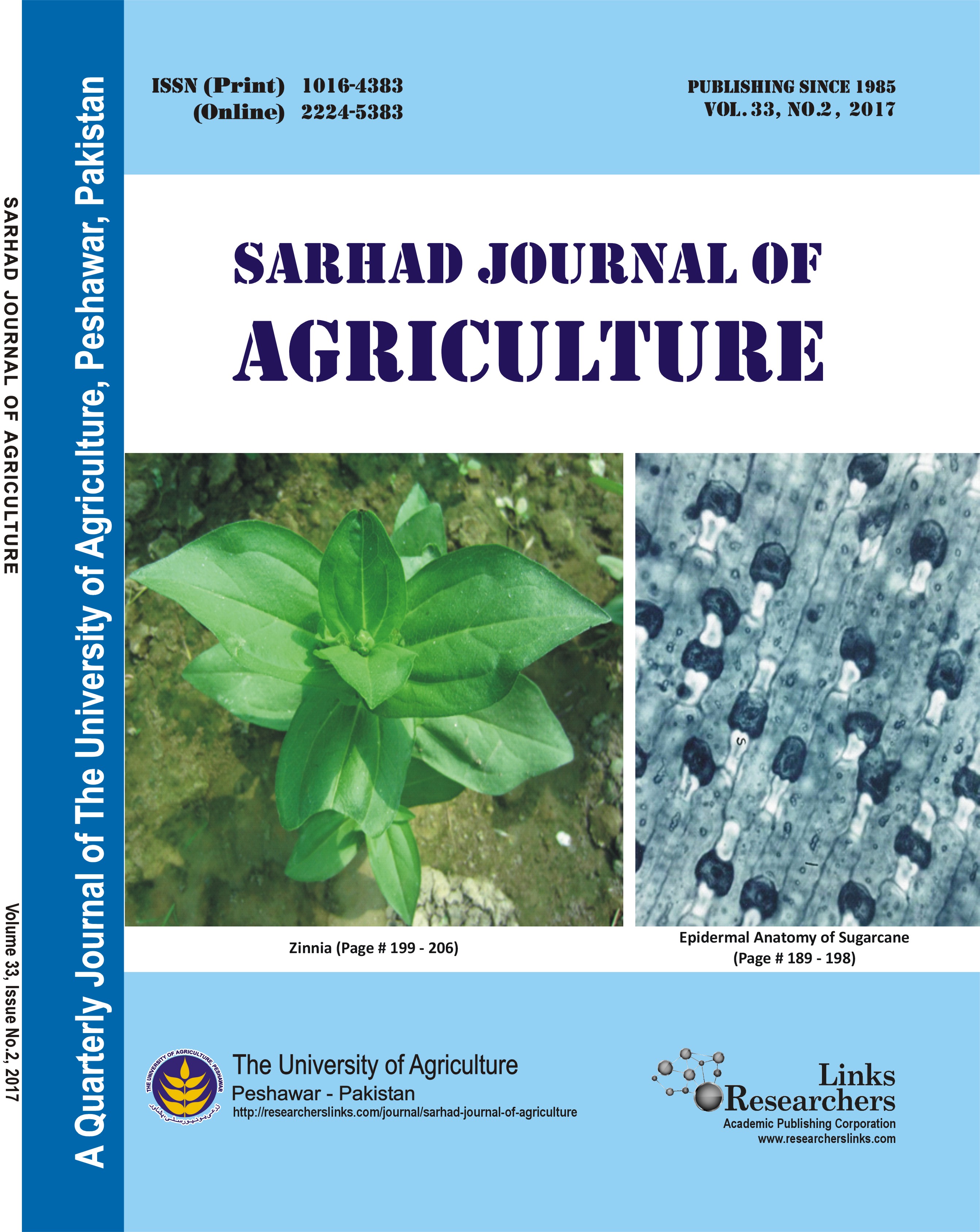Significance and Implications of Farming Practices, Knowledge and Methods of Disease Management in Developing Countries: A Case Study of Peach Farmers in Pakistan
Significance and Implications of Farming Practices, Knowledge and Methods of Disease Management in Developing Countries: A Case Study of Peach Farmers in Pakistan
Palwasha1, Siraj-ud-Din1 and Muhammad Fahim2*
ABSTRACT
Sustainable development goals (SDGs) have been formulated by the United Nations to address global issues including food insecurity around the world. However, in developing countries, like Pakistan, a number of basic factors are the major impediments in implementation of these goals. Surveys were conducted in Peach (Prunus persica L.) producing areas of Malakand Division, Khyber Pakhtunkhwa, where peach production, a major income source, is facing a serious decline over the past decade. Peach growers were mostly owners in Swat and Chitral districts whereas in grower in rest of the districts were tenants (60-75%). Highest literacy rate was observed in Swat District, (high school/matriculates 55%), while illiteracy rate was highest in district Chitral (72%). We believe that along with lack of proper education, know how about the technology and its use in peach production, growing of decades old cultivars i.e., Elberta (No 6) might be responsible for this production decline. Due to poverty, practice of intercropping is common to maximize their profit (intercropping upto 100% in Dir and Shangla Districts). Peach rot and fruitflies, are prevalent in all peach growing areas. Thirteen diverse insecticides and 22 fungicides alone or in combination are used to manage this twin menace. The indiscriminate use of agrochemicals i.e., 24-30 sprays per season with no effective results; led us to believe that either the pest or pathogen or both might have developed pesticide-resistances. We conclude that i. lack of knowledge about pests and diseases, ii monocropping and use of decade’s old cultivars, iii. lack of awareness about diseases, their ecology and epidemiology, iv. lack of knowledge about good phytosanitary practices and v. inability to choose the right pesticide/fungicide for better management are some of the contributing factors behind peach decline. Such situations are common in developing countries where lack of knowledge and awareness of farmers are playing a major role in food insecurity and perhaps in implementations of SDGs.
To share on other social networks, click on any share button. What are these?







